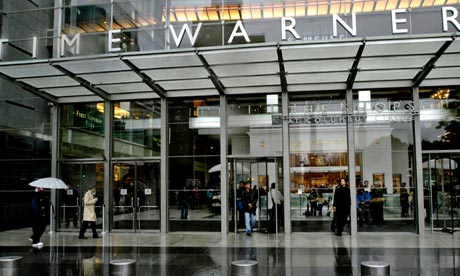Seeking CEO for $3bn market cap NYSE company. Candidate should be adept manager with turnaround and restructuring experience.
Time Warner is shortly to jettison Time Inc, the world's largest magazine publisher – once, but no longer, the conglomerate's heart and soul. Time Inc will be an independent company in a no-growth business, and, according to reports, is mired in debt layered on it by its tough-love parent.
And it will need a new CEO.
The present CEO, Laura Lang, a former advertising executive, who was resisted by the powerful barons inside of Time and failed to impress the parent company, was recently notified that she would not make the transition. The CEO before her, also hired from the outside, lasted five months before he was dispatched.
This is a company without clear prospects, with burdensome obligations, and one that has long knives ready for anybody who tries to run it.
Actually, the picture probably gets worse. The debt will likely be underwritten by one or more distress specialists in return for seats on the board – more people who'll want what they want, when they want it, no excuses.
Running Time Inc may be the least enviable job in America, but that fact does not make the media parlor game of guessing who might take the job any less compelling, nor does it likely dampen the ambitions of dreamers with hubris in their hearts … or those who just need a job.
Herewith some inevitable and inspired players:
Eric Schmidt used to be the CEO of Google, or, more precisely, the regent CEO for Google's founders, Larry Page and Sergey Brin. Under Schmidt, the company became, practically speaking, Google: it grew from a start-up player into the dominant force. But he has always been dogged by the feeling that he was merely the steward of others' brilliance; indeed, in 2011, he had to turn over the top job to Page, its more rightful owner.
Schmidt has many billions and political aspirations, but also an unfinished reputation. Time Inc could be truly his own show: he could invest his own money; and he could be the guy, the first guy, to actually bridge the old and new media divide.
Les Hinton, the former CEO of Murdoch's British properties and then of Dow Jones, took the fall for the hacking scandal in London. But that was in another country, and the scandal, if not dead, has moved on. The truth is that Hinton may be one of the last nuts-and-bolts managers of a print company.
What's more, he is a gifted political player and a well-enough-liked boss. He would also provide a natural link in combining Time Inc with Murdoch's spin-off print company – should the strategy become about getting bigger, which it always does.
Tom Freston is the former CEO of Viacom: he got the boot from Sumner Redstone, Viacom's controlling shareholder, for not buying MySpace (really!). Like almost everyone who has once been the CEO of a major media company, he's been unable to find a job as CEO of another major media company.
Freston, however, remains the best unemployed representative of the media establishment, from which everyone at Time Inc believes they are being exiled. Tom Freston would let the company feel so much better about itself.
Walter Isaacson. Well, duh: Isaacson is the former career Time Inc-er who rose to managing editor of Time and general prince of the company; then, in an unlikely and unhappy pairing, he went on to be the president of CNN.
He now heads the Aspen Institute, and wrote Steve Jobs' biography. This would be the ultimate homecoming, a way to say that Time Inc has purpose, culture and character – precisely the attributes that, in the last difficult decade, have been lost.
Lauren Zalaznick and Bonnie Hammer are the two high-ranking antagonists at NBC, each an adroit and canny player, each rising against the other, both ever survivors to rise and fall again.
So take either. They both need a company of their own to run. And Time Inc needs someone at the top who can out-maneuver everybody else below.
True, Henry Blodget was banned from the securities industry for life, but that hasn't stopped him from becoming a web publishing success with Business Insider. Having somebody banned for life from the securities industry as your CEO adds a sense of insouciance and opportunity to your company profile.
With her book about how to be a successful woman, Lean In, Sheryl Sandberg is at the red-hot center of media attention. So, pretty soon, people are going to realize she doesn't have a job – that she's just a figurehead at Facebook.
I'll say this for Time Inc, it's a helluva real job. If she succeeded there, Sandberg would deserve to be president of the United States, which is surely what she wants to be.
Bob Pittman, now the CEO of Clear Channel, may or may not have started MTV, may or may not have been the brains behind AOL's acquisition of Time Warner, and may or may not be the most brilliant business executive of his time. Or, at least, a business executive who seems to reliably make money for his partners.
What I don't think anybody disagrees about is that Pittman is one of the great salesman of the media business. That may be what Time Inc needs most of all.
David Carey has run Time Inc's two closest competitors, Conde Nast, where he reached a penultimate status, and Hearst, where he is currently president. Hearst is now up, while Conde and Time Inc are down. What's more, he has experience in the women's magazine market, which is where most of Time Inc's money now comes from.
The job is his, I suspect, if he wants it. But Carey, a famously nice guy, knows better than most how feral the executives at Time Inc have become, and how, in order to run this company, you'd have to have a real taste for blood.
Still, the media business is a business of fiefs, courts and feudal kingdoms, and you need a proper domain if you are to march on. Time Inc is for the taking.









